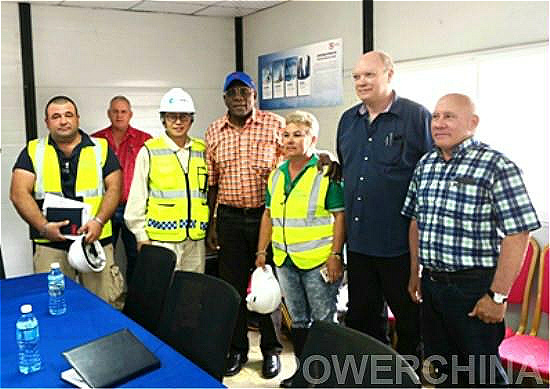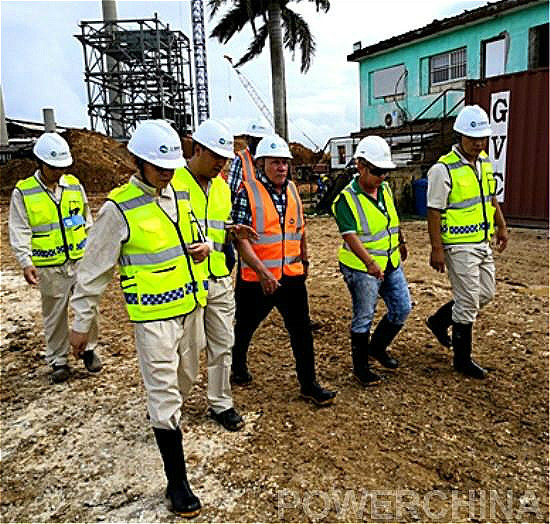The vice-president of the Cuban Council of State, Ramiro Valdés, and other government officials inspected the largest Cuban bio-electric plant in the town of Ciro Redondo, about 450 kilometers east of Havana, on Oct 17.
The vice-president, who recently visited Beijing, stressed the project's significance and praised its current progress, announcing more convenient passport policies to support construction teams' work.
The bio-electric plant broke ground on April 27, explained a project manager from POWERCHINA, noting that the construction of the main boilers and electrostatic precipitators will be finished by the end of the year.
At the ground breaking ceremony, Chinese Ambassador to Cuba, Chen Xi, said the project will be a success because, in addition to offering new jobs to the residents of the community, it will also preserve the environment by offering clean and efficient energy.
Constructed by a POWERCHINA subsidiary in a joint venture with British-Cuban company Biopower SA, the project will recycle sugar cane leftovers generated in the region and substantially reduce the emission of carbon dioxide. Upon operation, the plants will offer electricity and steam energy to nearby sugar mills and sell the rest to the country's electricity grid.
The total power generation will reach 300 MW, covering 10 percent of the country's electricity production.
 |
| Cuban officials meet with the construction team. [Photo/POWERCHINA] |
 |
|
Cuban officials at the construction site in Ciro Redondo, a town about 450 kilometers east of Havana, Oct 17. [Photo/POWERCHINA] |